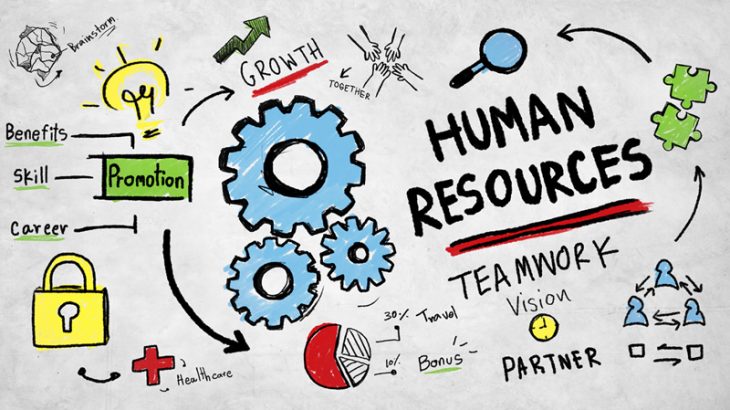Customer service and technical support are two terms that are often used interchangeably, but it is important to understand the distinction between them. They both provide valuable services in different ways, and it is important to know which one to turn to when you have an issue or question. In this article, we will discuss how customer service and technical support differ and how these differences can be beneficial in a variety of situations. We will also explore how they work together to provide customers with the best experience possible.
Defining Terms
When it comes to customer service and technical support, many people tend to use these terms interchangeably. However, they are not the same thing. Customer service focuses on providing assistance and support to customers regarding their needs, complaints or queries related to a product or service. On the other hand, technical support is more specialized and deals with resolving issues related to software, hardware or other technical aspects of a product.
Customer service representatives are typically responsible for dealing with customers’ inquiries through different channels such as phone calls, emails or online chat services. They aim to answer questions about a company’s products/services as well as provide guidance on how best to use them. Technical support representatives are more focused on troubleshooting issues that may arise from using a product. They have in-depth knowledge of how the product works and can help users fix any problems they may encounter.
In conclusion, while both customer service and technical support are important for businesses; they serve different purposes. Understanding the distinction between the two can help companies optimize their resources better by assigning tasks according to each specialty’s demands. Therefore, it is essential for companies that offer products/services requiring customer interaction also invest in hiring trained personnel dedicated solely for each purpose – be it customer service or technical support – depending upon their business models’ priorities and requirements.
What is Customer Service?
Customer service is a vital aspect of any business as it plays a crucial role in building customer loyalty and retention. It involves ensuring that customers are satisfied with the products or services they receive from a company. This can include responding to inquiries, resolving issues, providing guidance on product usage, and delivering exceptional support throughout the purchasing process.
In contrast to customer service, technical support focuses more on addressing specific technical issues that customers may encounter while using a product or service. Technical support agents are typically trained in troubleshooting and problem-solving techniques to help customers resolve these issues quickly and efficiently. They may also provide guidance on how to use various features of a product or service.
While both customer service and technical support share similar objectives – to ensure customer satisfaction – they differ in their approach to achieving this objective. Customer service emphasizes proactive engagement with customers through personalized interactions, while technical support prioritizes efficient resolution of specific technical problems.
What is Technical Support?
Technical support refers to the assistance provided to customers who are experiencing technical difficulties with a product or service. Unlike customer service, which deals with general inquiries and complaints, technical support is focused solely on resolving technical issues. Technical support can be offered through various channels such as phone, email, live chat, or remote access.
In most cases, technical support teams consist of highly trained professionals who possess in-depth knowledge of the product or service they are supporting. They work closely with the development team to understand the inner workings of the product and provide solutions for any issues that arise. Technical support may also involve troubleshooting problems that are caused by user error or equipment failure.
Overall, technical support plays a vital role in ensuring customer satisfaction and loyalty. It helps customers overcome frustrating obstacles and get back to using their products efficiently. By providing prompt and effective technical assistance, businesses can establish trust and build long-term relationships with their customers.
Benefits of Customer Service
When it comes to customer service, there are some distinct benefits that businesses can enjoy. First and foremost, providing excellent customer service can help to keep customers coming back time and time again. This is because customers who feel valued and appreciated are more likely to remain loyal to a business over the long term.
In addition, good customer service can also help businesses improve their reputation in the marketplace. When customers have positive experiences with a business’s customer service team, they are more likely to share those experiences with others. This kind of word-of-mouth advertising can be incredibly valuable for businesses looking to grow their customer base.
Finally, offering top-notch customer service can also help businesses identify areas where they need improvement. By listening carefully to what customers are saying about their experiences with a company’s products or services, businesses can make adjustments as needed to ensure that they continue meeting the needs of their target audience over time.
Benefits of Technical Support
One of the most significant benefits of technical support is that it provides immediate solutions to technical issues. When customers encounter a problem with a product or service, technical support agents are well-trained and equipped to diagnose and fix the problem quickly. This saves customers valuable time and reduces their frustration levels.
Another advantage of technical support is that it offers ongoing assistance. Technical problems can arise at any time, so having access to reliable technical support means that customers can get help whenever they need it. Additionally, this type of support typically includes regular updates and maintenance checks, which help ensure that products continue to function optimally over time.
Finally, effective technical support builds customer trust and loyalty. When companies provide excellent technical support, they demonstrate their commitment to helping customers succeed with their products or services. By delivering exceptional service consistently, companies can create a positive reputation for themselves in the market and win over new business as well as repeat business from existing customers.
Challenges of Customer Service
One of the biggest challenges of customer service is managing customer expectations. Customers often have high expectations for the level of service they will receive, and it can be difficult to meet these expectations every time. It’s important to communicate clearly with customers about what you can and cannot do, as well as any limitations or restrictions that may impact their experience.
Another challenge is dealing with difficult customers. Whether a customer is upset, angry or simply difficult to work with, it’s important to remain professional and calm at all times. This requires strong communication skills and the ability to manage emotions effectively.
Finally, one of the biggest challenges facing customer service teams today is keeping up with changing technology. As more businesses move online and digital channels become increasingly popular, it’s important for customer service teams to stay up-to-date on new technologies and tools that can help them provide better support to customers. This requires ongoing training and education, as well as a commitment from management to invest in new technologies that can improve the overall quality of customer service provided by your organization.
Challenges of Technical Support
Technical support is an essential aspect of any organization that provides technical products or services. The primary goal of technical support is to resolve customer issues related to the product or service they have purchased. However, providing excellent technical support comes with its own unique set of challenges. Firstly, the technical support team must possess a comprehensive understanding of the product and be able to diagnose and fix any issue promptly. This requires extensive training and knowledge transfer from engineering teams.
Another challenge faced by technical support teams is dealing with customers who lack technical expertise. Customers often struggle to describe their issues accurately, leading to misunderstandings and improper solutions being provided. Moreover, customers can get frustrated if their problems are not resolved quickly enough or require multiple interactions with different agents, leading to a negative experience overall.
Lastly, keeping up-to-date with new technologies and changes in existing products also poses a significant challenge for technical support teams. As technology evolves rapidly, it becomes essential for these teams always to be learning and staying abreast of developments so that they can offer relevant advice on how customers can optimize their systems effectively. In conclusion, while providing excellent customer service is vital for any organization’s success, delivering exceptional technical assistance presents its own set of obstacles that need careful navigation by those involved in this field.
Conclusion: Differences and Similarities
It’s easy to assume that customer service and technical support are the same things. After all, both share a common goal of providing assistance to customers or clients. But there is actually a big difference between these two departments. The primary goal of customer service is to resolve customer issues with products or services, while the primary goal of technical support is to provide technical assistance and troubleshooting services.






